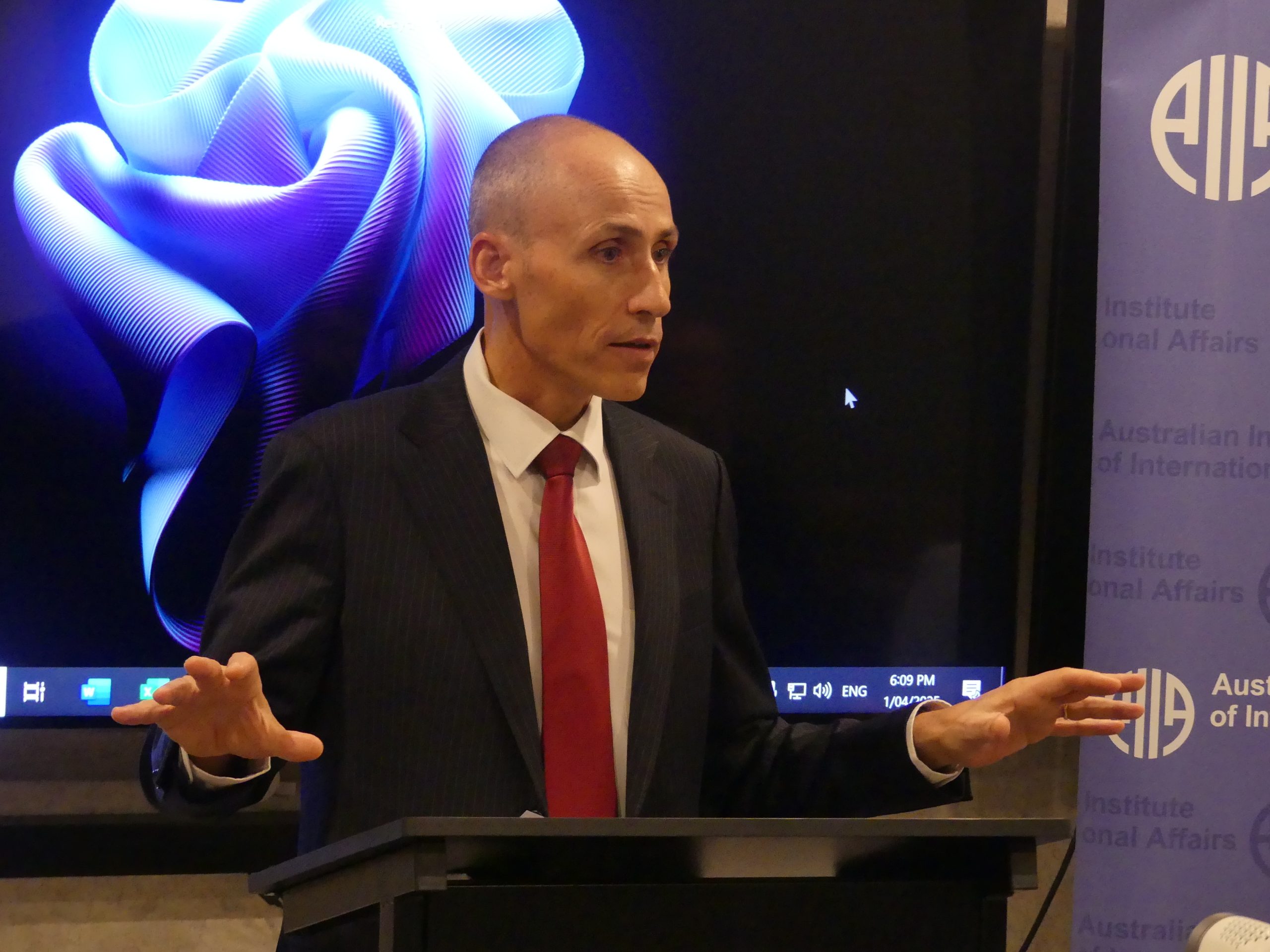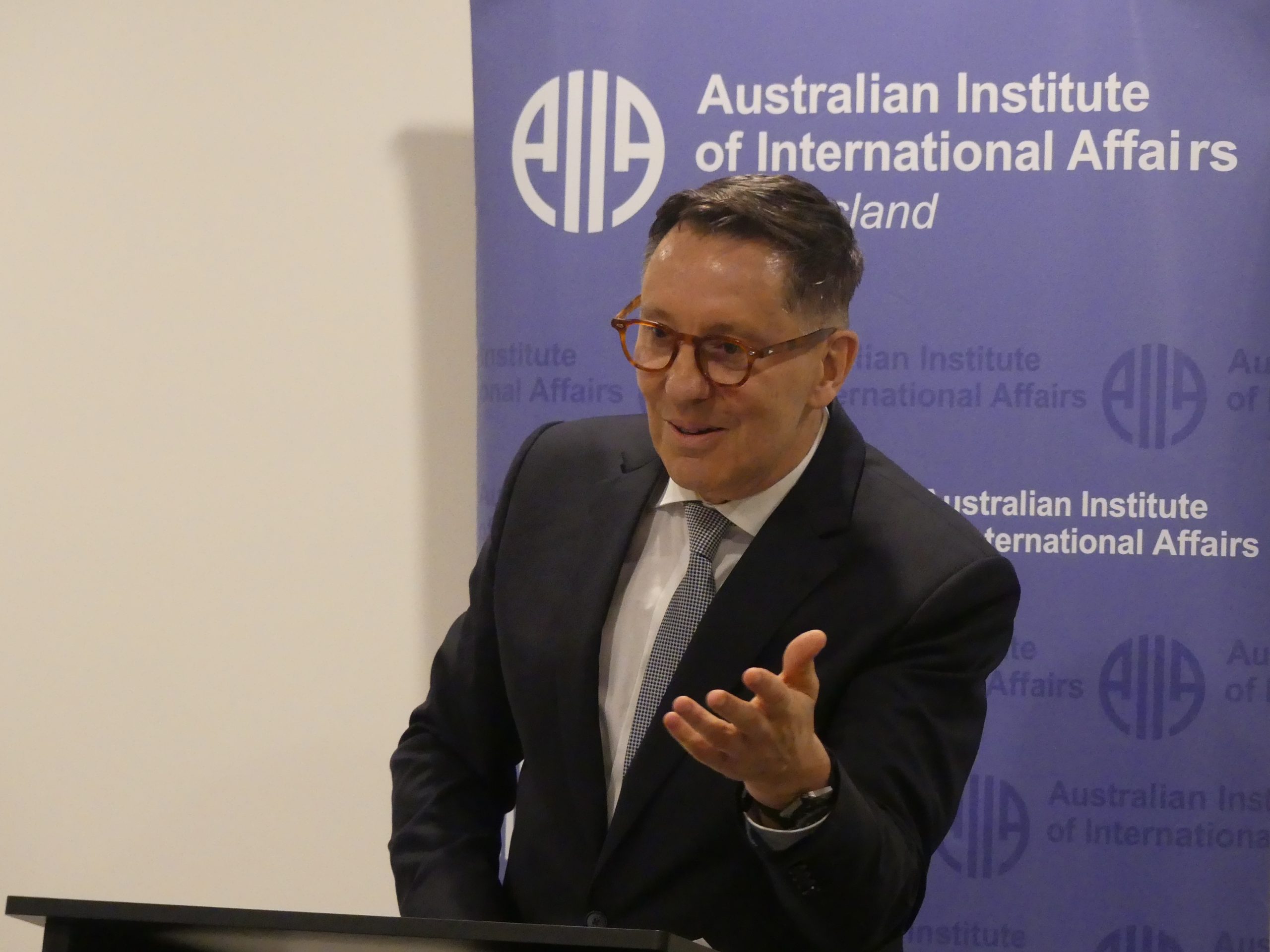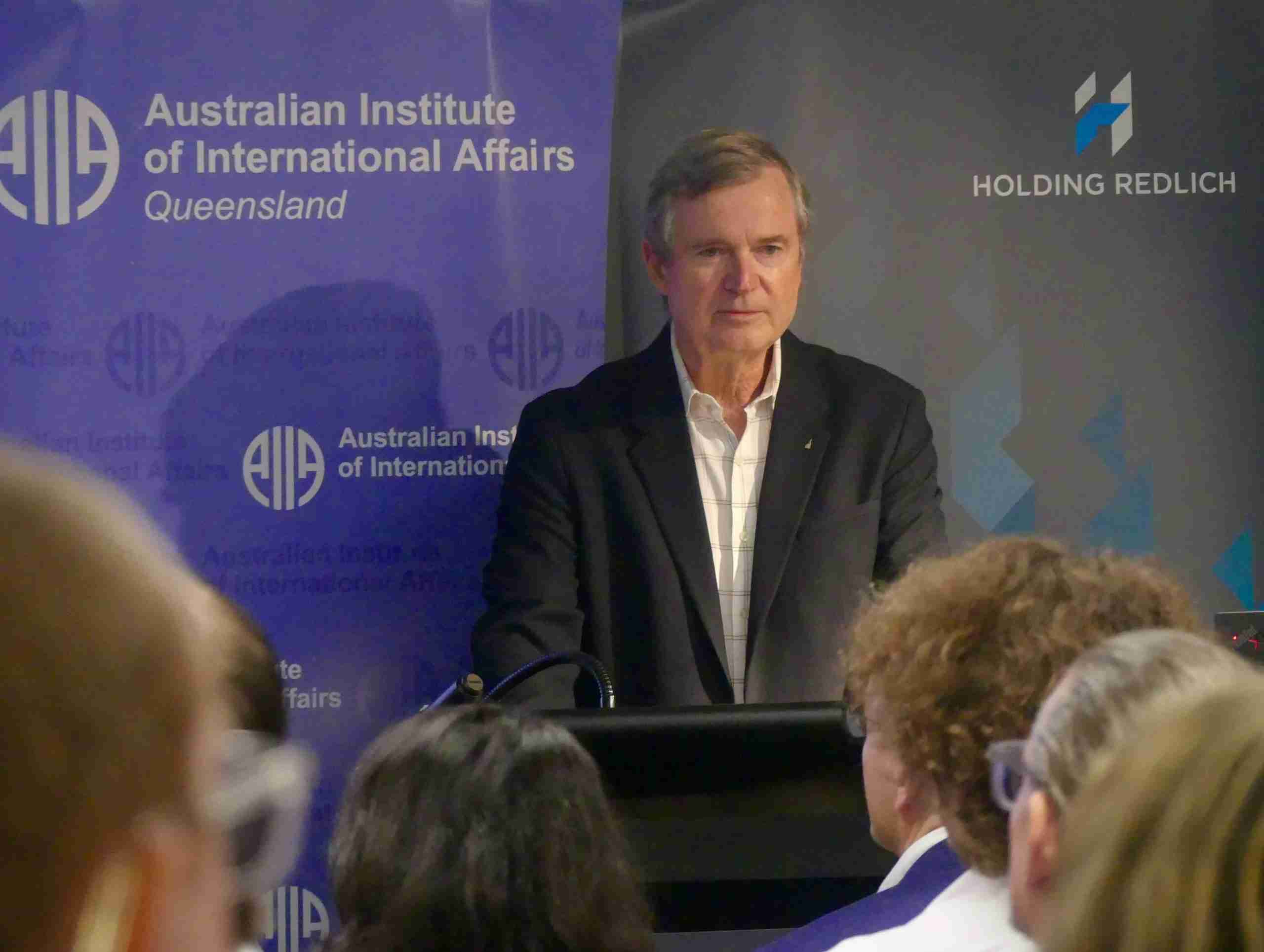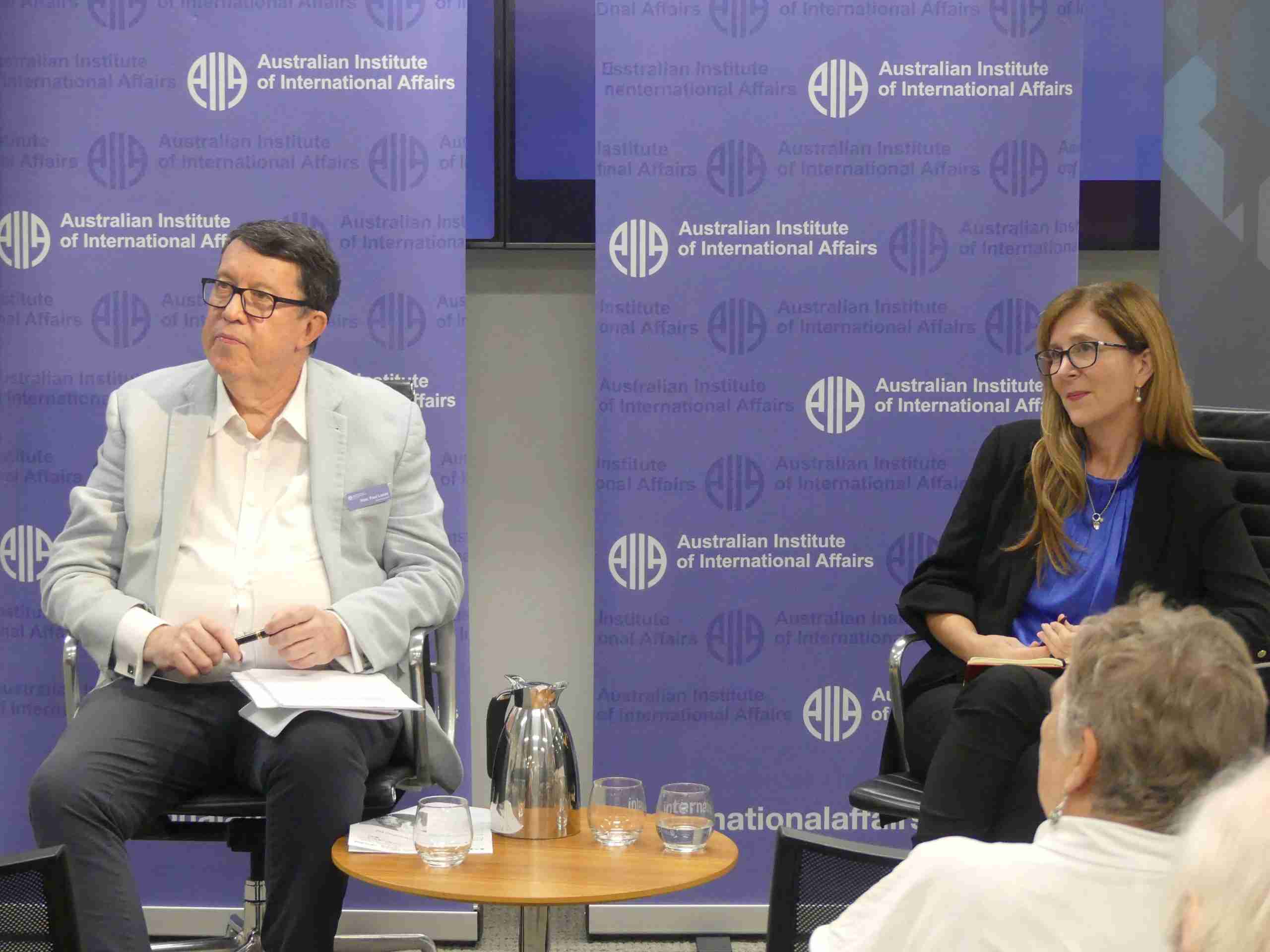Written by Isabella Grellman
China is currently sailing straight and true, but with concerns of major headwinds for their economy, it begs the question as to whether this is the best course of action. Charting the way forward was the widely analysed and anticipated third plenum session of the Central Committee of the CCP, which took place last month. Joining the Australian Institute of International Affairs Queensland to discuss the outcome of the third plenum was lecturer and author, Dr. Scott Waldron. During his presentation, Dr Waldron provided insight into the crucial meeting to redirect and evaluate China’s economy for the next five years.

Dr Scott Waldron (image supplied)
Beginning his presentation, Dr. Waldron noted that although China’s economy has experienced positive growth in recent decades, the country is now facing headwinds, resulting in economic imbalances and growing global concern. The objective of a plenum according to Dr. Waldron, is to lay out policy instruments that would be beneficial for China’s economic health. Shortly after the third plenum took place, Dr. Waldron mentioned that the stock market plummeted to a six-month low, which may come as a surprise to some. However, these economic changes implemented as a result of the third plenum have historically been marked by smaller shifts over a longer period of time. Yet, the government is not seeking short-term fixes or abrupt structural changes, a reluctance as Dr. Waldron sees it, is at the behest of President Xi Jinping. As head of the Central Economics and Finance Committee, President Xi Jinping believes that China is following an acceptable economic trajectory, and that little change is needed.
Breaking down the third plenum, Dr. Waldron scrutinised the carefully constructed title of the document, ‘Further Deepening Reform Comprehensively to Advance Chinese Modernisation’. Examining the language employed by the politburo, he acknowledged that much of the sentiment surrounding the plenum “is laden with meaning.” Dr. Waldron explained that each word would have been meticulously chosen for a specific purpose, highlighting three words in particular, ‘comprehensive’, ‘reform’ and ‘modernisation’. It was the task of those invited to the third plenum to grapple “the vast landscape that is the Chinese economy broadly defined” and reform where necessary. The need for change is evident within China’s social welfare sector, which is currently causing a major fissure within the economy.

18th National Congress of the Communist Party of China (11 November, 2012)
The current imbalance lies in the consumption to investment ratio, now almost two and a half times lower than the global average. For Dr. Waldron, the lower levels of household consumption can be attributed to an undercooked social welfare system. Citizens are taking precautions, opting to increase their savings in the event of sickness or in the case of families, to ensure their children’s education. As the rate of savings grows, more is made available for investment. Although investment had previously been funnelled into infrastructure and real estate, producing high returns, this has declined since 2010. As Dr. Waldron argues, local governments are now left with inadequate infrastructure while incurring enormous debts, as China grapples with the need for a new economic model.
Dr. Waldron pressed that to adequately rebalance the system, fiscal reform is needed. Any response by the CCP must include improvements in the social welfare system “to increase birthrates, ageing populations… and [address] employment problems.” Yet, the tax revenue needed to offset any increase in social services is currently used to settle local government debt, making it a difficult task to keep up with social welfare payments. As Dr. Waldron explained, “if there is going to be a new reform, there has to be an increased ability of local government to generate revenue to pay for social welfare that requires redistribution of tax sharing between central and local government.” Complicating matters further is a growing resistance not only to the country becoming a “social welfare state,” but the significant number of those that are incredibly wealthy. Dr. Waldron explained that to cut local government debt requires a redistribution of power away from the wealthy political elite, which may prove to be a difficult task.

From left to right: The Hon. Paul Lucas, Diana Lopes, Captain Kasper Kuiper, Dr Scott Waldron, Muthuraj Guruswamy and Reimen Hii
The third plenum also appeared to mark a shift in industry policy objectives. According to Dr. Waldron, these objectives now include a comprehensive national security plan and the development of new technologies, which are being actively pursued through various programs including supply-side structural reform and the ‘Made in China 2025’ initiative. Even still, the politburo understands that industries, particularly those involving high-tech, now contribute comparatively less to the national economy, knowing they will need to continue to value traditional industries to avoid deindustrialisation. This “aggressive” approach to industry policy has led to overcapacity as Dr. Waldron stated, while “…macro-imbalance in the chain, low consumption, low imports, high exports … and sheer size of China’s economy have led to large trade surpluses between China and its many export destinations, which is causing friction internationally.” Furthermore, he warned that these issues may lead to an array of conflicts. In response, China has been defensive, insisting that their actions are untoward and that any criticism is a prejudicial ploy to “contain China”.
For Australia, Dr. Waldron argues that conflict is likely not on the horizon. Australia’s high exposure to the Chinese economy confirms that this is an unlikely possibility, as opposed to say, the United States. However, Dr. Waldron insists that China will not want to become dependent on Australia for exports and will implement protections to ensure that this does not happen. Undoubtedly, change is needed within the Chinese economy. As to whether the necessary changes will be made, remains to be seen.
Edited by Benjamin Colter
Isabella Grellman is an emerging journalist based in Brisbane with a passion for global stories, women’s issues and pop culture. She is a second year university student studying a Bachelor of Communications and Journalism at Griffith University.




